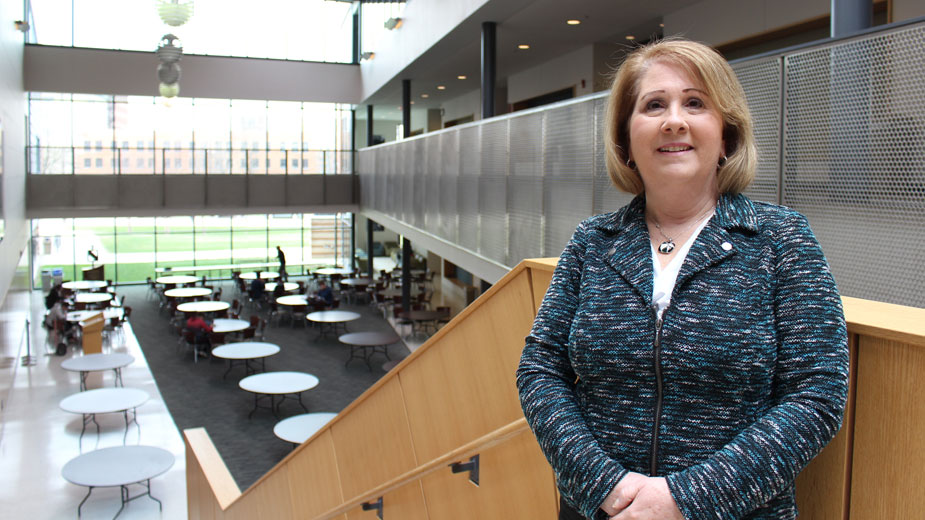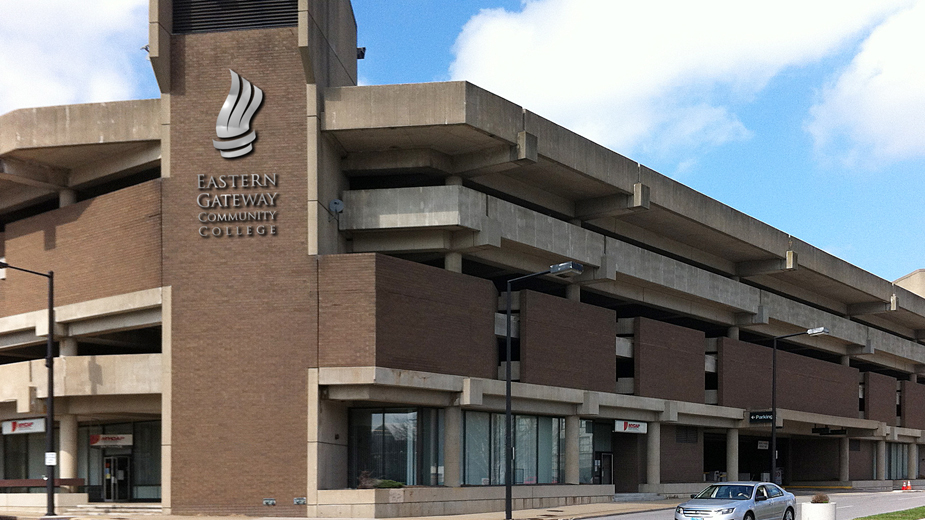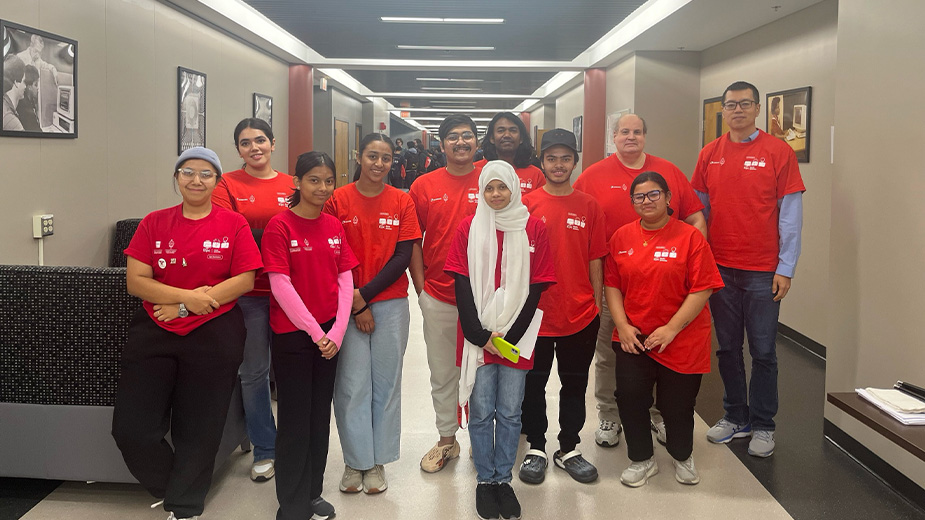Williamson College Connects Students with Local Business
YOUNGSTOWN, Ohio — It wasn’t long ago that universities were regarded as institutions devoted strictly to thought and academia, reinforcing the popular perception that higher education is segregated from the real world.
Indeed, not only were universities isolated, those colleges or schools within the campus often retreated to their own fields of study with little cross-collaboration among other departments.
All of these barriers have evaporated at Youngstown State University, exemplified by the Williamson College of Business Administration and the impact it has on small-business development across the Mahoning Valley.
“Teaching in silos doesn’t work,” says Betty Jo Licata, dean of the Williamson College. “The future is interdisciplinary collaboration. The most valuable business person has a level of scientific or technological literacy; the most valuable engineer is able to understand the basics of business.”
These strategies, mixed with a curriculum that enables students to use their skills and knowledge to solving real problems in the business world, makes Williamson College a dynamic center for applied learning and young talent.
“The world is changing quickly and higher education changes along with it,” Licata says.
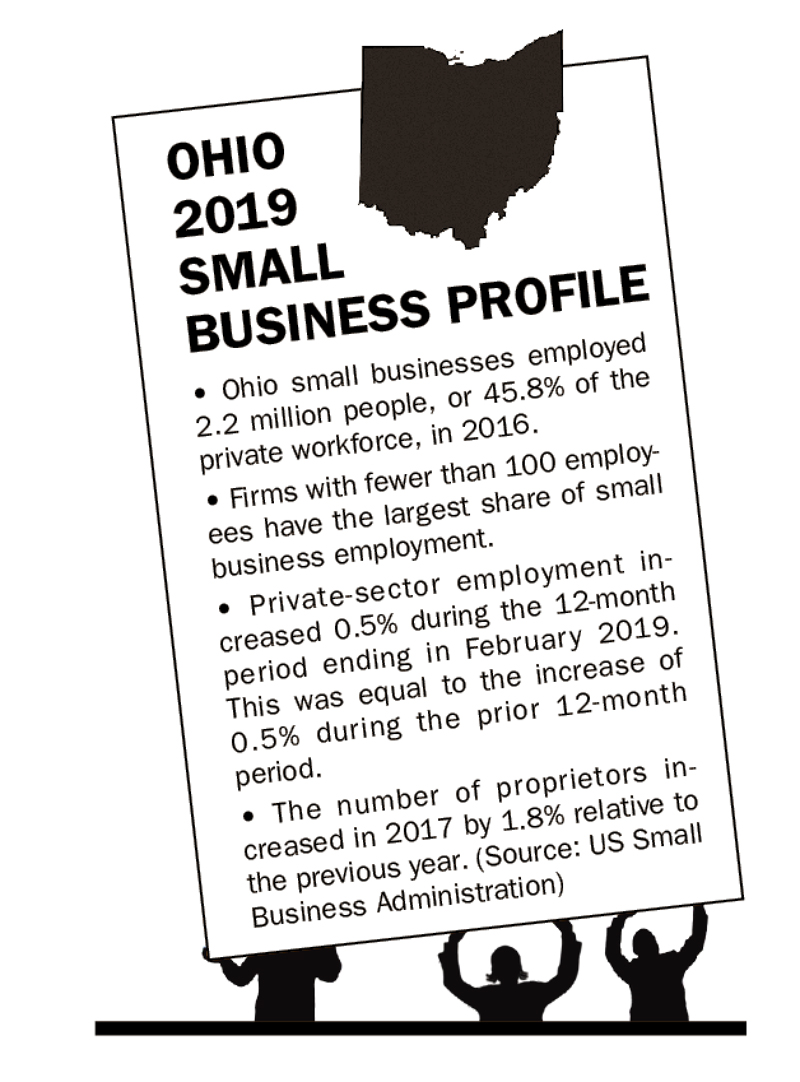
The Williamson College – from its geographic position that links the YSU campus and downtown Youngstown, to its challenging course curriculum, to the technological amenities inside the college – serves as an ideal barometer as to the direction YSU and the local business community is headed.
“Developing that culture of professionalism and providing students with a wide array of hands-on applied experience is a key part of their preparation,” Licata says. “When our students come to us, we tell them we’re going to treat them as an emerging business professional.”
Central to achieving this is the college’s applied-learning projects, Licata says. “In a given year, our students will complete more than 100 consulting projects throughout the region,” Licata says.
Thus, the connection between the Williamson College and small businesses in the Mahoning Valley couldn’t be stronger, she says.
“We really have two goals for this,” Licata says.
One objective is to provide students with the opportunity to apply what they’re learning in the classroom and solve an actual problem confronting an existing company by working with that business, she says. The other objective is to serve as a valuable resource for businesses in the Mahoning Valley, whether it’s through applied-learning projects or internships.
“The students want to put that knowledge and skill to work,” she says.
Last fall semester, for example, MBA candidates in professor Kendra Fowler’s consumer and product management course were tasked with completing a situation analysis for Blanc Designs, which sells upscale gift items from its store in the Southern Park Mall.
“The students analyzed the business and the industry it operates in,” Fowler says. “Often, my students will identify competitors or potential customer segments that the business might not have thought of. That’s where the business gets a lot out of it.”
The course is offered every fall. Each student group selects an issue that a particular business faces and establishes a foundation from which to build a sound business strategy. These strategies are developed through a second course held in the spring semester, Applied Marketing Strategy, a course taught by professor Christina Saenger.
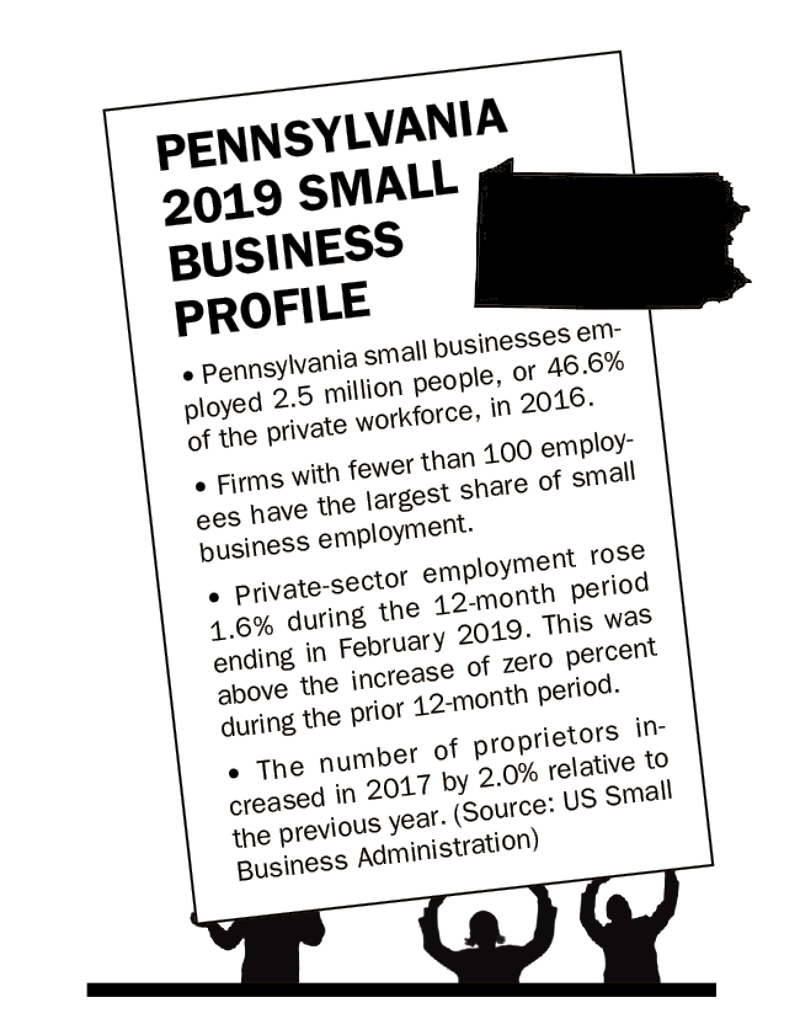
“Since we set this up, we’ve worked with two retailers and another company, Meet Your Miracle in Boardman, that does elective ultrasound,” Fowler says.
To complete the course, students delve into the strength and weaknesses of a company, analyze its position in the marketplace, research its market share and present a description of the company’s goals. They also identify major trends in the industry in which the company competes, its competition, target markets and how these markets can be accessed.
Often, these small businesses lack the resources to effect all of the recommendations immediately, but it does give them solid groundwork to expand their companies in the future, Fowler says.
“It’s too early to tell whether they’ll implement the long-term ones,” she says.
Fowler’s course typically attracts about 40 MBA prospects, and groups comprise between four and six students.
“It teaches them a lot,” she notes. “Most of them already know how to navigate in the real world. This helps them take their skills in whatever industry they’re working in and see how it applies in other industries or other businesses.”
Moreover, businesses realize the value these students create for their own operations.
“They came up with a lot of good strategies,” says Nicole Blosser, who owns along with her husband Meet Your Miracle and a spin-off business, Heartbeat Keepsakes in Boardman.
Meet Your Miracle produces 3D and 4D ultrasound imaging for soon-to-be parents, and can perform the services at their location at 1305 Boardman-Canfield Road or at a client’s home.
Fowler’s class was divided into two segments, Blosser says.
One was to examine the Meet Your Miracle company and the other was to provide guidance to Heartbeat Keepsakes. That business creates jewelry with the baby’s heartbeat readout imprinted on bracelets, necklaces and other items.
“For both of them, we used some of the marketing and social media suggestions and implemented those,” Blosser says. “I couldn’t follow up with a lot of it right off the bat. But their ideas are good for the future of the business.”
The impact of the Williamson College on local business is evident through other initiatives, says Dean Licata. “We have an extensive internship program,” she says. In any given year, about 200 students in the business school are involved in paid internships with companies or organizations – many of them in the Mahoning Valley.
“Internships are a win-win,” Licata says.
Businesses looking to recruit new talent are able to use the internship program as a resource and then assess whether that intern would fit in as a full-time employee upon graduation. For interns, the placement rate for full-time employment is significantly higher – about 90% – than those who don’t pursue internships, she adds.
This presents a source of stability to the local economy, Licata says, in that it keeps educated talent in the workforce, combatting the “brain drain” that has depleted the region. “The best thing we can do is build those professional career opportunities and to continue to build the quality of life in the Mahoning Valley,” she says.
Many students would love to pursue job opportunities in the region, Licata says, and the Williamson College is adapting its curriculum to prepare its student for a changing business world. “We’re changing all the time and looking for new opportunities for our students.”
A course in business analytics is under development, for example, and the college encourages students to study abroad for a short-term global learning experience, Licata says. “We had a group in Prague over spring break and another group will be visiting Florence and Rome,” she says.
About 1,500 students are enrolled in the Williamson College of Business Administration, of whom approximately 1,300 are undergraduates and the rest are enrolled in the graduate school.
“Our newest degree program is our master’s of accountancy,” Licata notes. That program was launched three years ago in response to accounting firms who want to see students with 150 semester hours of credit before they sit for their CPA exam and can begin full-time employment.
“We have about 30 students in that program, and the pass rate on the
CPA exam has been very successful,” Licata says. Other initiatives, such as the college’s online MBA program, enables professionals to advance their educations while pursuing their careers.
There is also an effort to connect students with larger companies in the region, Licata says. The department of management, for example, launched a new program during the spring semester that conducts day trips with students to major corporations such as Goodyear, Parker Hannifin, and Nestlé’s operation in Cleveland. There, students received a firsthand tutorial from executives on logistics, supply-chain management, human resources and market strategies.
“Strategic partners with businesses are critical, whether it’s local business or in other parts of the country or around the world,” Licata says. “That’s part of fulfilling our mission of supporting economic development throughout the region.”
This was evident nine years ago, when YSU opened its Williamson College building and relocated the business school from what is today the Lincoln Building along Lincoln Avenue. Today, Williamson fills an entire block, bordered by Rayen Avenue to the north, Wood Street to the South, Hazel Street to the west and Phelps Street on the east.
Inside the building are amenities such as a room where private companies can conduct focus groups, executive board rooms, conference rooms, a 200-seat auditorium where business students can make formal presentations or host speakers who visit campus, and LaunchLab, a space on the building’s first floor dedicated to 3D printing and idea prototyping.
Williamson College is also home to the Ohio Small Business Development Center and the Export Assistance Network.
“We’re grateful everyday to have a facility like this that not only serves our students but also the regional business community,” Licata says.
Indeed, when Licata posed a question to undergraduates asking them whom they believed the Williamson College’s biggest customers were, she thought most would respond with a conventional answer that it was the tuition-paying students.
Instead, she was happily surprised with the response.
“Many of them said that employers are the customers,” Licata says. “Students understand that they pay us to acquire an education to meet the demands of the business world.”
Pictured: “Teaching is silos doesn’t work,” says Betty Jo Licata, dean of Williamson College.
Copyright 2024 The Business Journal, Youngstown, Ohio.
